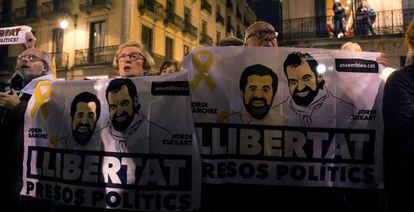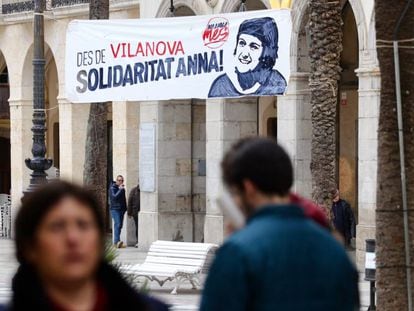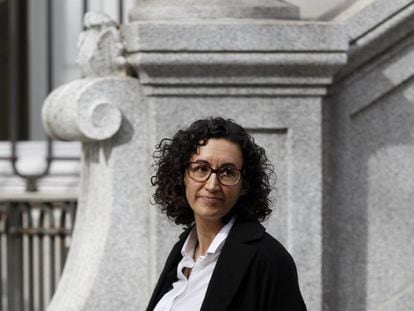Amnesty International accuses Spain of restricting freedom of speech
In report, non-profit says Spain disproportionately prosecutes people for “glorifying acts of terror”

In its annual report on the state of human rights in countries across the world, Amnesty International has criticized Spain for making excessive terrorism allegations against people expressing a difference of opinion on social media.
“Authorities pressed criminal charges against people who had expressed opinions that did not constitute incitement to a terrorism-related offence and fell within the permissible forms of expression under international human rights law,” reads the report, published Thursday.
“Some” Spanish authorities “disproportionately restrict the right to freedom of expression,” says the report
According to the document, 20 people were found guilty of glorifying terrorism online last year, including a young woman named Cassandra Vera who was sentenced to two and a half years in jail after making “a few jokes” on Twitter about the 1973 assassination of Luis Carrero Blanco, who was the Spanish prime minister towards the end of the Franco dictatorship.
Dozens of people were prosecuted for “glorification of terrorism” and “humiliation of victims” on social media networks,” the report adds. The document mentions the case of puppeteers who were detained in pre-trial custody for five days for “supporting terrorism and inciting hate” in 2016.
Catalan protests
Amnesty International also condemns the government’s response to the Catalan secessionist drive. During the illegal referendum on October 1, the reports argues that Spanish police used excessive force against peaceful protesters opposing a police operation.
In 2017, Cassandra Vera was charged after making “a few jokes” on Twitter about the assassination of Carrero Blanco
“The police fired blank cartridges and rubber bullets, seriously injuring one person and causing him to lose the sight in one eye,” the report continues.
According to Amnesty International, “some authorities disproportionately restricted the rights to freedom of expression and peaceful assembly” following a decision by the Constitutional Court to ban the Catalan independence referendum.
The report also makes reference to the pre-trial detention of pro-independence leaders Jordi Cuixart and Jordi Sànchez on charges of sedition and rebellion, calling them “very broadly defined offenses.”
Immigrants
Spain’s treatment of immigrants has also come under attack. The report says Spain has failed to meet its commitment to relocate 15,888 refugees, and criticizes government for deporting two African immigrants without checking their identity, allowing them access to a lawyer, translators or a doctor in 2017 – a case that the European Court of Human Rights said was illegal.
The Spanish government is also criticized for continuing to reduce public funding for social housing and closing investigations into crimes committed during the Civil War and under the dictatorship of Francisco Franco. The report adds that authorities have also failed to take measures to locate and identify the thousand of victims who remain buried in mass graves.
English version by Melissa Kitson.












































